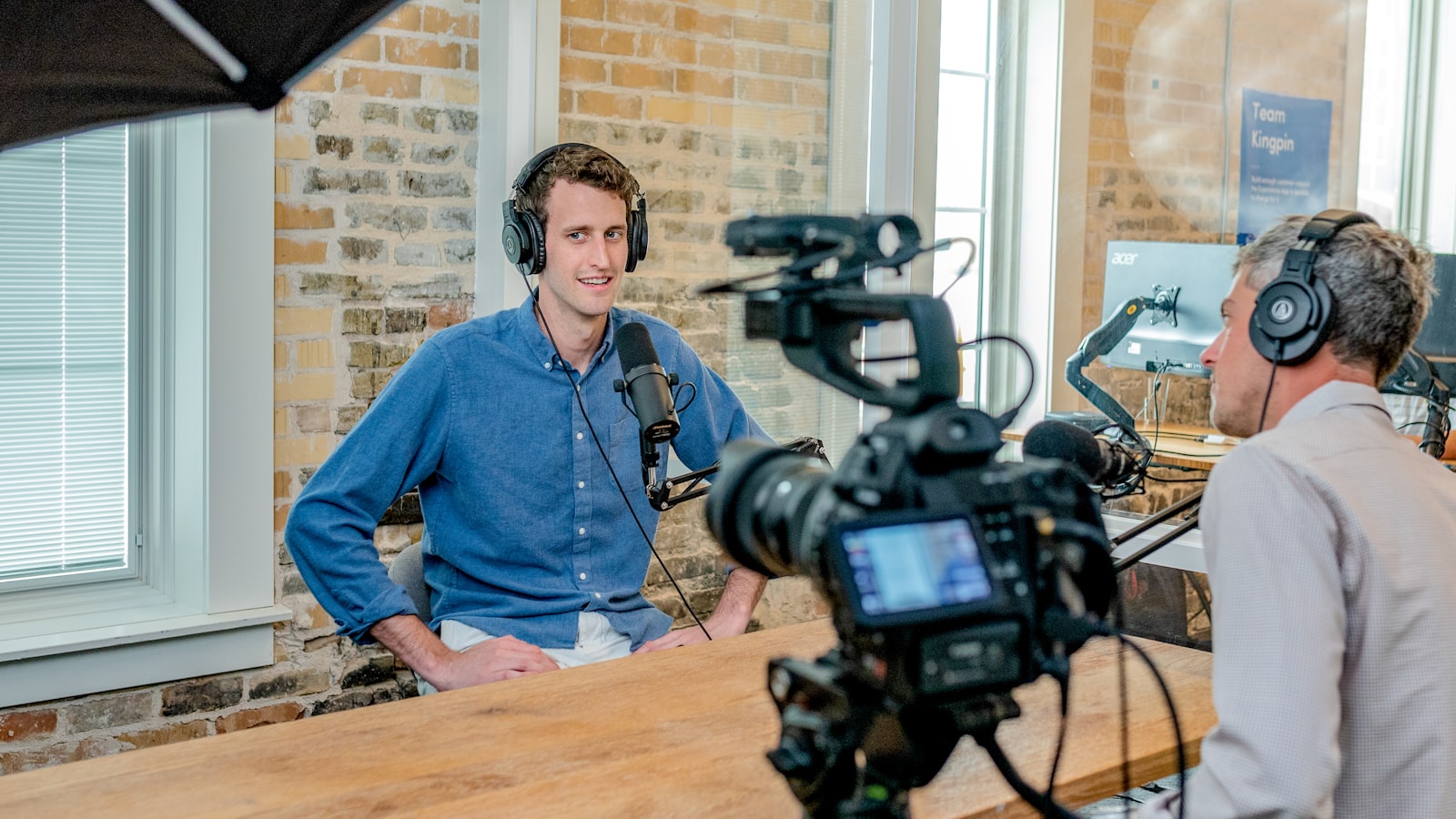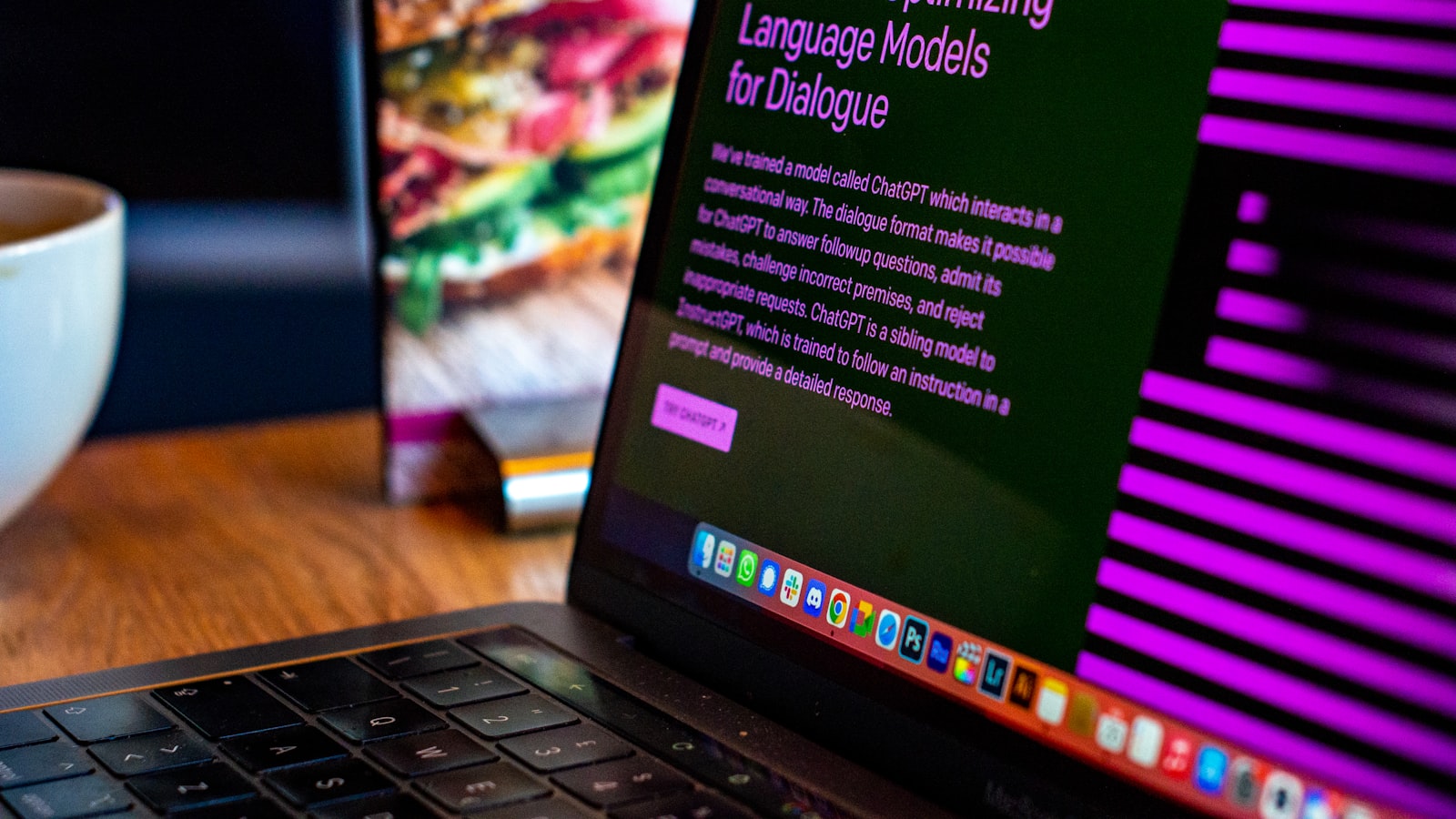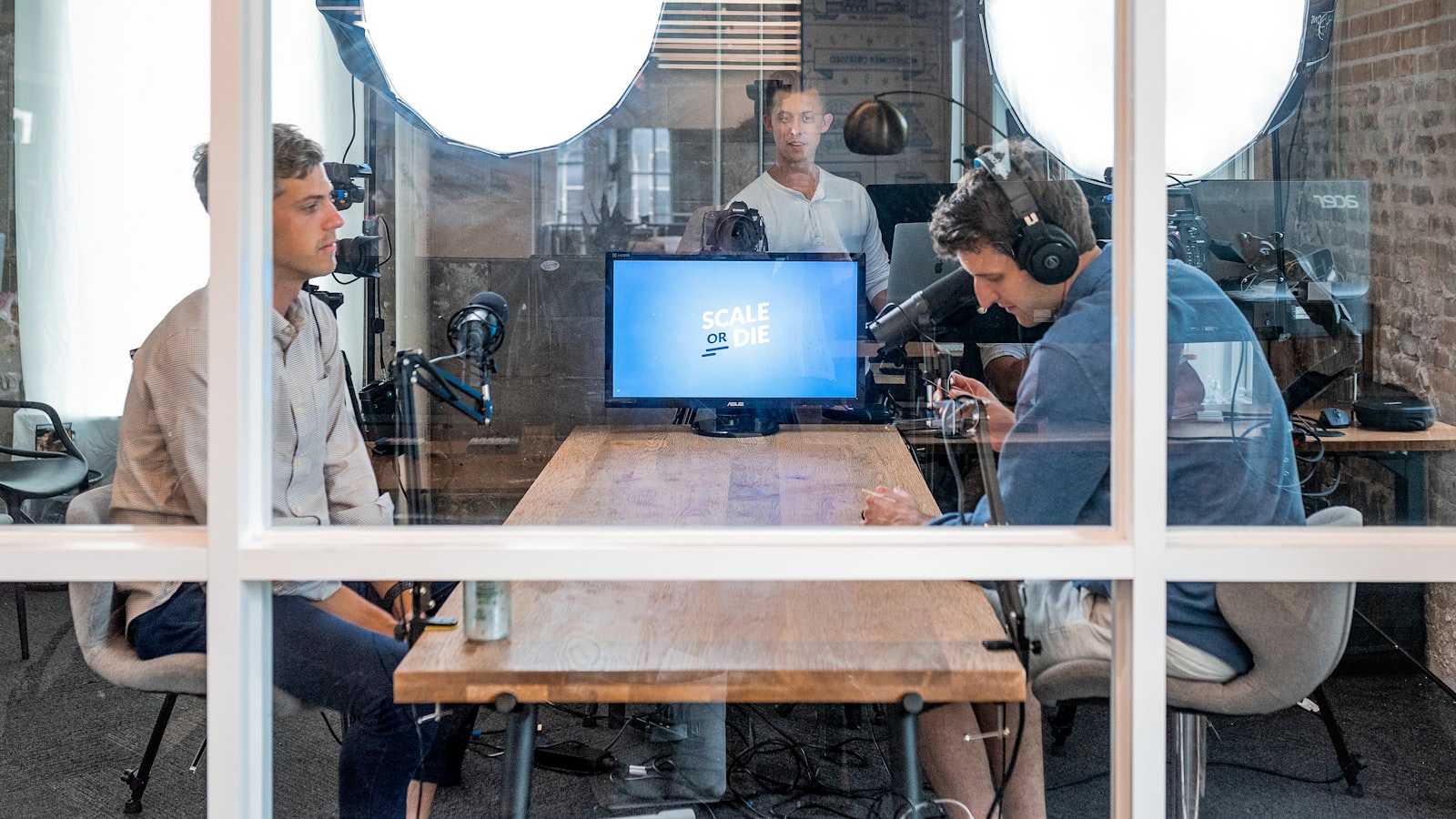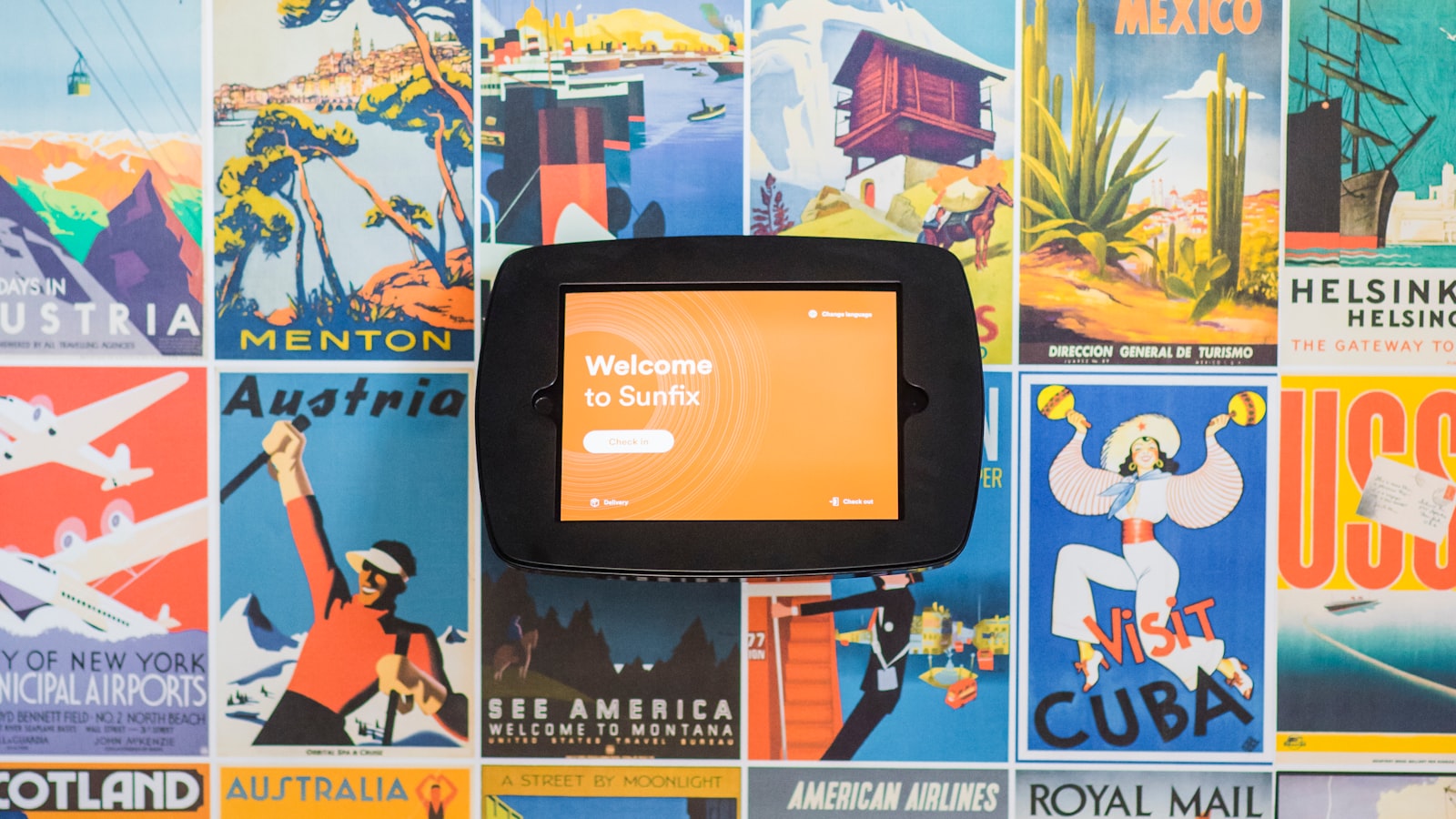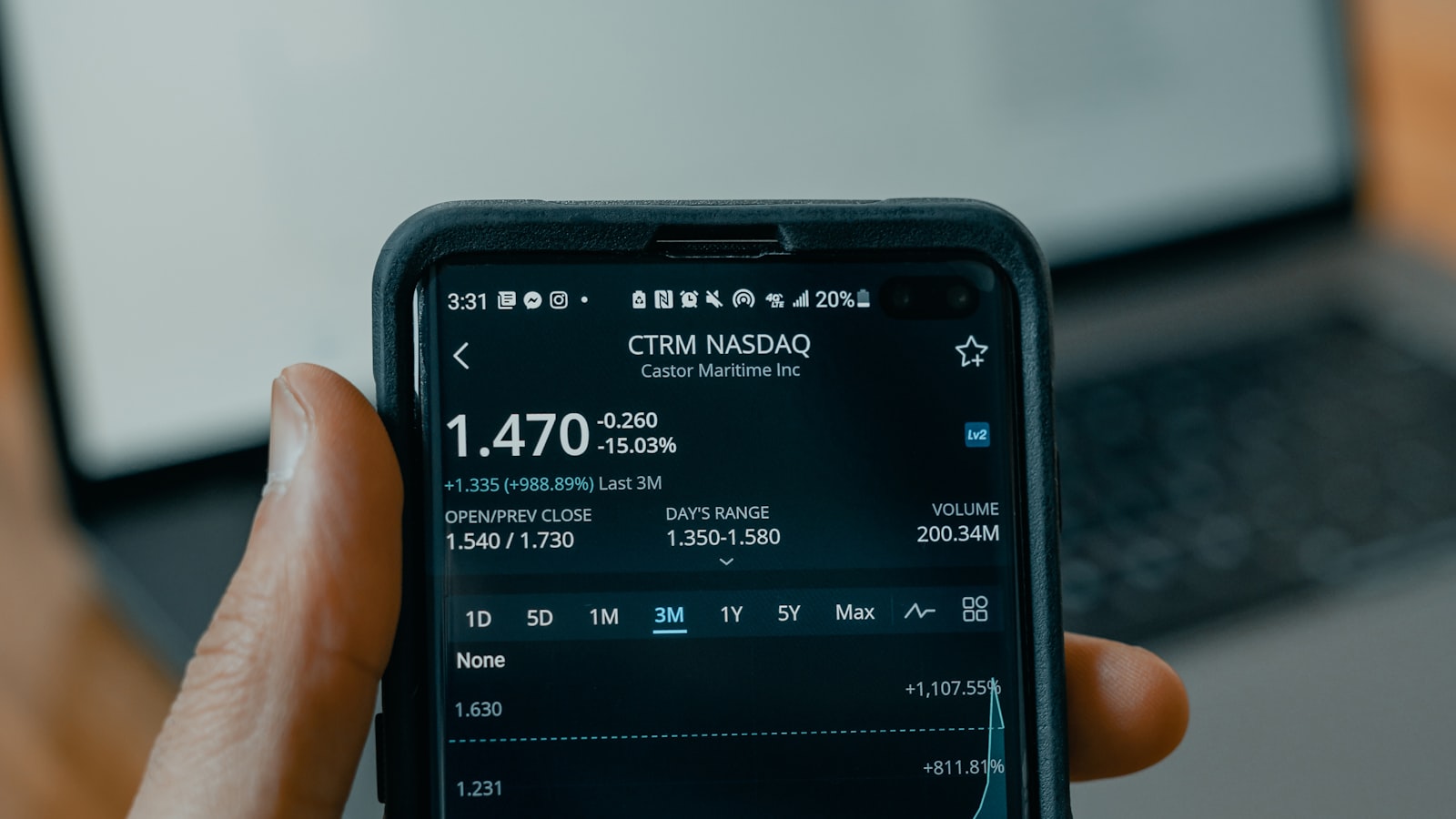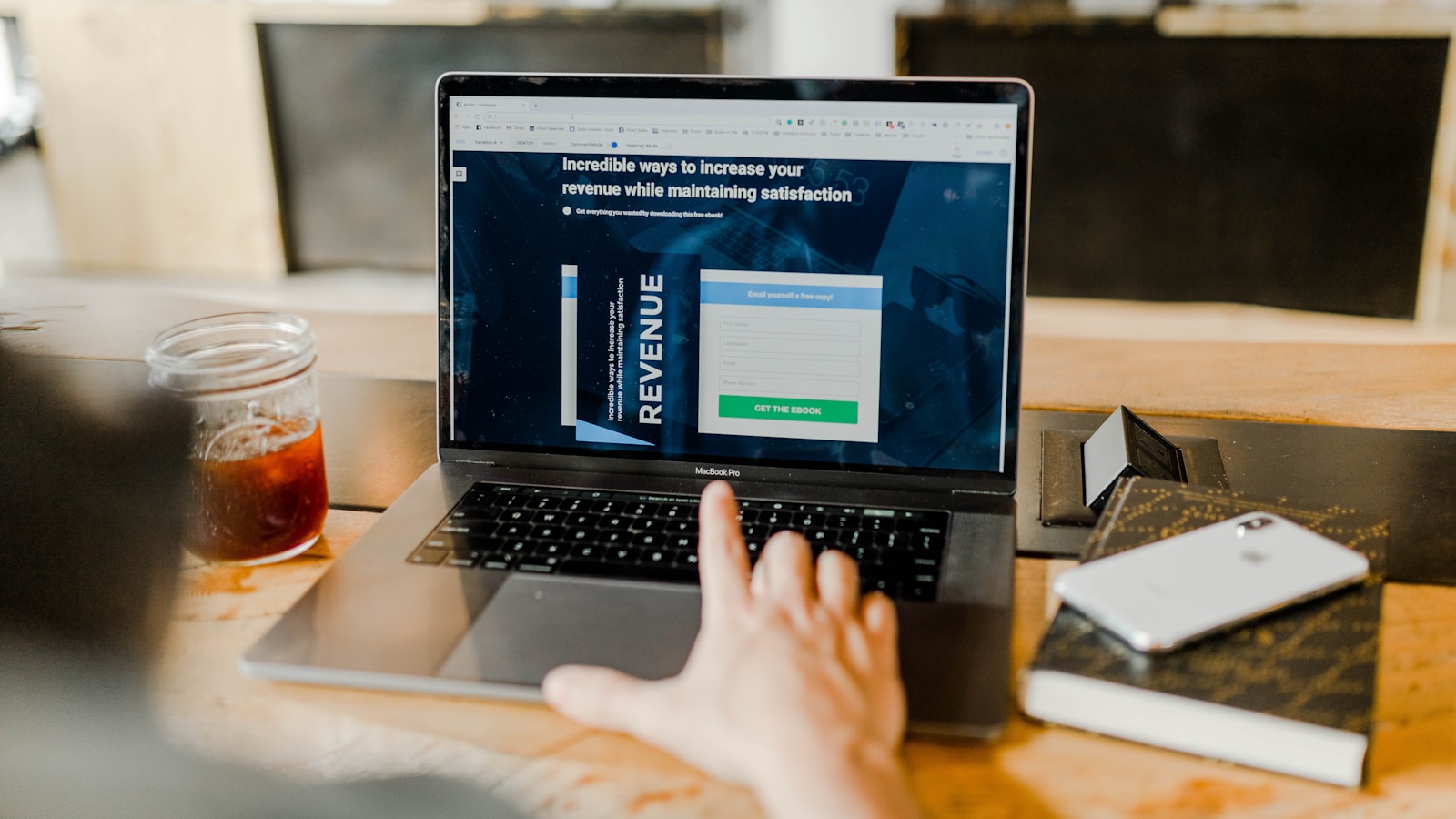Collaborating with Influencers for Programmatic SEO Success
Collaborating with Influencers for Programmatic SEO Success
Collaborating with Influencers for Programmatic SEO Success
Boost your programmatic SEO success by collaborating with influencers. Discover effective strategies for SEO influencer collaboration in this insightful guide.
Boost your programmatic SEO success by collaborating with influencers. Discover effective strategies for SEO influencer collaboration in this insightful guide.



Introduction to Programmatic SEO and Influencer Collaboration
Imagine skyrocketing your website traffic and search engine rankings with a powerful strategy that combines the precision of programmatic SEO with the influence of trusted voices in your industry. This isn't just a fantasy—it's a proven approach that savvy marketers are leveraging to achieve remarkable results. Welcome to the world of SEO influencer collaboration.
In today's digital landscape, traditional SEO tactics alone often fall short. The key to unlocking programmatic SEO success lies in harnessing the power of influencer partnerships. By aligning with influencers who resonate with your target audience, you can amplify your reach, build credibility, and drive targeted traffic to your site.
But how exactly do you collaborate with influencers to enhance your SEO campaigns? This article dives deep into practical strategies, real-world examples, and actionable insights that will guide you through the process. Whether you're new to influencer marketing or looking to refine your existing efforts, you'll find valuable tips to elevate your SEO game.
Stay tuned as we explore:
Identifying the right influencers for your brand
Building authentic and mutually beneficial relationships
Integrating influencer content into your programmatic SEO strategy
Measuring the impact of your collaborations on SEO performance
By the end of this article, you'll be equipped with the knowledge and tools to harness the synergy between influencers and programmatic SEO, setting the stage for unparalleled digital marketing success.
Understanding Programmatic SEO
What is Programmatic SEO?

Programmatic SEO involves the automated creation of keyword-targeted pages, enabling companies to generate thousands of pages with minimal manual effort. This strategy leverages data from various sources, such as product prices or location information, to build content-rich pages that attract organic traffic. Companies like Zapier, Zillow, and G2 use programmatic SEO to drive millions of pageviews annually.
For instance, Nomadlist creates location-specific pages filled with data on internet speeds, temperatures, and languages. Similarly, Zapier generates app directory pages showcasing various integrations and workflows. These examples illustrate how programmatic SEO can be applied across different industries to scale content creation and enhance visibility.
Benefits of Programmatic SEO
Programmatic SEO offers several advantages for businesses looking to scale their content and improve their search engine rankings:
Efficiency: Automating the creation of keyword-targeted pages saves time and resources, allowing companies to focus on other critical aspects of their business.
Scalability: By leveraging data, businesses can generate thousands of unique pages, each targeting specific keywords and search intents, thus expanding their reach.
Consistency: Automated processes ensure that content is consistently structured and optimized, maintaining a high standard across all pages.
Data-Driven Insights: Programmatic SEO relies on data to create content, which can provide valuable insights into user behavior and preferences.
However, it is essential to focus on quality over quantity. As Google's John Mueller warns, programmatic SEO can lead to spammy, low-value content if not executed correctly. To avoid this, ensure that your programmatic content includes unique and useful data that meets the needs of your audience.
Implementing programmatic SEO involves several steps:
Find Keywords That Scale: Use tools like Ahrefs to identify keywords with numerous variations.
Check Search Intent: Ensure your content aligns with what searchers are looking for.
Find Relevant Data: Use proprietary, public, or scraped data to populate your pages.
Build Pages: Utilize tools like Google Sheets to map data to page templates.
Publish Content: Automate publishing with no-code tools like WP All Import or Zapier.
By following these steps, businesses can effectively implement programmatic SEO to drive organic traffic and improve their search engine rankings. For more insights on advanced SEO strategies, check out resources from Moz and Search Engine Journal.
The Role of Influencers in SEO
Who are Influencers?
Influencers are individuals who have established credibility and a substantial following in a specific niche or industry. They possess the power to affect the purchasing decisions and opinions of their audience due to their authority, knowledge, position, or relationship with their followers. Influencers can be found across various platforms, including social media, blogs, and video channels.
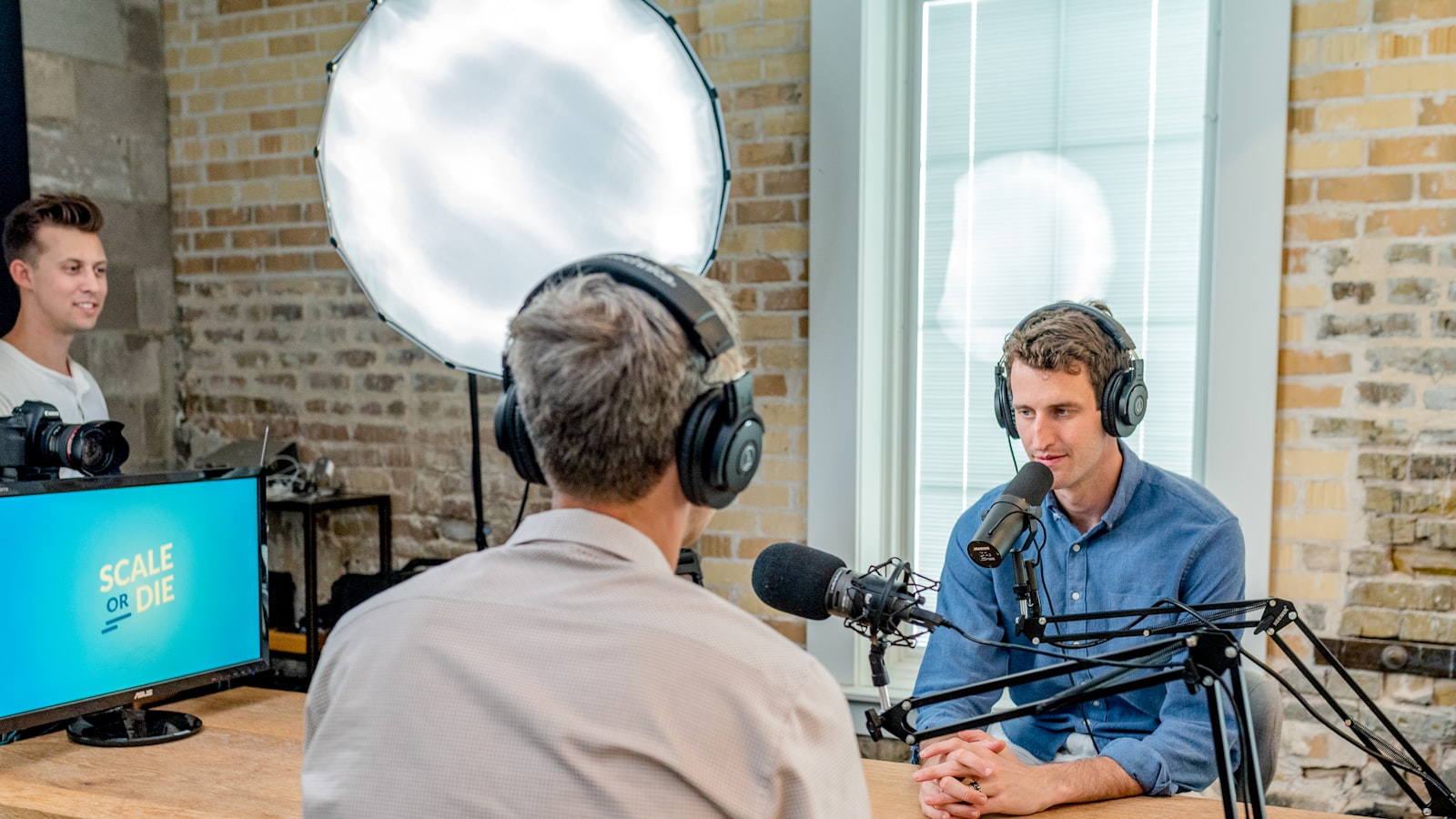
Types of Influencers: Micro, Macro, and Key Opinion Leaders (KOLs)
Influencers can be categorized into three main types based on their reach and influence:
Micro-Influencers: These influencers typically have a smaller, but highly engaged, following. They usually have between 1,000 to 100,000 followers. Micro-influencers are known for their close-knit communities and high levels of interaction with their audience, making them ideal for targeted marketing campaigns.
Macro-Influencers: With follower counts ranging from 100,000 to 1 million, macro-influencers have a broader reach. They often have a significant presence on multiple platforms and can drive substantial traffic and engagement. Macro-influencers are suitable for brands looking to increase visibility and reach a larger audience.
Key Opinion Leaders (KOLs): KOLs are experts or authorities in a specific field. They might not have the largest follower counts, but their opinions are highly respected and trusted within their niche. Collaborating with KOLs can lend significant credibility and authority to your brand.
Why Influencers Matter for SEO
Influencers play a crucial role in enhancing SEO efforts for several reasons:
Content Creation: Collaborating with influencers can lead to the creation of high-quality, engaging content that resonates with their audience. This content can drive traffic to your website and improve your search engine rankings.
Backlinks: Influencers often link back to your website or content, providing valuable backlinks that boost your site's authority and SEO performance. For more on the importance of backlinks, check out the Moz blog on link building.
Social Signals: Influencers can amplify your content across social media platforms, increasing social signals such as likes, shares, and comments. These social signals can indirectly impact your SEO by driving more traffic and engagement.
Brand Awareness: Influencers help increase brand visibility and awareness, making it easier for potential customers to find and engage with your brand. This enhanced visibility can lead to more organic traffic and improved SEO results.
By strategically partnering with influencers, you can leverage their reach and credibility to enhance your programmatic SEO efforts. For more insights on integrating influencer marketing with SEO, explore resources on platforms like HubSpot and Search Engine Journal.
Strategies for Collaborating with Influencers
Identifying the Right Influencers
Finding the perfect influencers for your brand is crucial for achieving programmatic SEO success. Start by defining your target audience and the specific goals of your campaign. Use tools like Upfluence or BuzzSumo to discover influencers who align with your brand values and have a genuine connection with your audience. Look for influencers who have a strong engagement rate and whose followers match your target demographic.
Consider the following criteria when selecting influencers:
Relevance: Ensure the influencer's content aligns with your brand's niche.
Engagement: Look for influencers with high engagement rates rather than just a large follower count.
Authenticity: Choose influencers who have built trust with their audience through genuine interactions.
Reach: Depending on your goals, decide whether to work with micro, macro, or key opinion leaders (KOLs).
Building Authentic Relationships
Once you've identified the right influencers, focus on building authentic relationships with them. Authenticity is key to successful collaborations. Start by engaging with their content, leaving thoughtful comments, and sharing their posts. This helps establish a genuine connection before reaching out for a partnership.
When approaching influencers, personalize your outreach. Mention specific posts or content that resonated with you and explain why you believe they would be a great fit for your brand. Offer creative freedom and emphasize the long-term potential of the partnership. Building trust and mutual respect will lead to more effective and enduring collaborations.
Creating Valuable Content Together
Collaborating on content creation can significantly enhance your programmatic SEO efforts. Work with influencers to create content that is both valuable and engaging for their audience. This could include blog posts, social media updates, videos, or even podcasts.
Here are some content collaboration ideas:
Guest Blogging: Have influencers write guest posts for your blog, incorporating relevant keywords and linking back to their own content.
Social Media Takeovers: Allow influencers to take over your social media accounts for a day, creating content that resonates with their followers.
Product Reviews: Send influencers your products and ask them to create honest reviews and tutorials.
Co-Branded Content: Work together on content that is co-branded, showcasing both your brand and the influencer's unique style.
Leveraging Influencer Networks for Link Building
Influencer networks can be a powerful tool for link building, which is essential for SEO. When influencers share content that includes links to your website, it can significantly boost your site's authority and search engine rankings. Encourage influencers to include backlinks in their blog posts, social media updates, and other content.
Consider these strategies for leveraging influencer networks:
Content Syndication: Partner with influencers to republish your content on their platforms, ensuring backlinks to your site.
Collaborative Projects: Work on joint projects such as eBooks, webinars, or research studies that include links to your website.
Influencer Roundups: Feature influencers in roundup posts on your blog, asking them to share the post with their audience.
Resource Pages: Create resource pages on your website and ask influencers to link to them in their content.

By following these strategies, you can form effective, long-lasting partnerships with influencers, driving engagement and achieving programmatic SEO success. For more insights on advanced SEO strategies, visit Moz or HubSpot.
Case Studies and Success Stories
Successful Influencer Collaborations in Programmatic SEO

When it comes to programmatic SEO, influencer collaborations can be a game-changer. Let's look at some real-world examples where brands have successfully leveraged influencers to achieve remarkable SEO results.
Example 1: HubSpot and Neil Patel
HubSpot, a leading CRM platform, teamed up with Neil Patel, a well-known digital marketing influencer. By creating high-quality, SEO-optimized content together, HubSpot was able to significantly increase its organic traffic. Neil Patel's extensive reach and credibility in the digital marketing space helped HubSpot attract a broader audience and improve its search engine rankings.
Example 2: Glossier and Micro-Influencers
Beauty brand Glossier utilized micro-influencers to boost its SEO efforts. By partnering with numerous micro-influencers who had loyal followings, Glossier was able to generate a large volume of authentic content and backlinks. This strategy not only improved their search engine rankings but also enhanced their brand visibility and customer engagement.
Example 3: Airbnb and Travel Bloggers
Airbnb collaborated with travel bloggers to create engaging content that highlighted unique travel experiences. These collaborations resulted in high-quality backlinks from reputable travel blogs, which significantly boosted Airbnb's SEO performance. The authentic and relatable content created by travel bloggers resonated well with their audiences, driving more organic traffic to Airbnb's website.
Lessons Learned from Top Brands
Top brands have demonstrated that strategic influencer collaborations can lead to substantial SEO benefits. Here are some key takeaways:
Choose the Right Influencers: Selecting influencers whose audience aligns with your target market is crucial. This ensures that the content resonates well and drives meaningful engagement.
Focus on Quality Content: High-quality, SEO-optimized content is essential. Collaborate with influencers to create valuable content that provides real value to your audience.
Leverage Authenticity: Authenticity is key in influencer collaborations. Authentic content is more likely to be shared and linked to, which boosts your SEO efforts.
Measure and Analyze: Track the performance of your influencer collaborations. Use analytics to measure the impact on your SEO and make data-driven decisions for future campaigns.
For more insights on advanced SEO strategies and influencer marketing, check out resources from Moz, Search Engine Journal, and HubSpot.
Pro Tips for Maximizing SEO Impact
Optimizing Content for Search Engines
To achieve programmatic SEO success, optimizing your content is crucial. Here are some actionable tips:
Use Keywords Strategically: Ensure your primary keywords appear in the title tag, URL, and the first 100 words of your content. This helps search engines understand the main topic of your page.
Enhance Readability: Use bullet points and subheadings to break up text and make your content more engaging. This keeps users on your site longer, which can positively impact your rankings.
Include Related Keywords: Incorporate synonyms and related terms throughout your content. This helps search engines grasp the context better and can improve your chances of ranking for various queries.
Update Old Content: Regularly refresh outdated content to keep it relevant. Search engines favor fresh content, and updating old pages can give them a new lease on life.
Speed Up Your Site: Optimize your website’s loading speed. A faster site provides a better user experience and can prevent downranking by search engines.
Measuring and Analyzing Results
Tracking the performance of your SEO efforts is essential for continuous improvement. Here’s how you can measure and analyze your results effectively:
Use Google Analytics: Monitor key metrics such as organic traffic, bounce rate, and average session duration. These insights can help you understand user behavior and identify areas for improvement.
Leverage Google Search Console: Identify which keywords you’re already ranking for and optimize those pages further. This tool also helps you spot and fix any indexing issues.
Track Backlinks: Use tools like Ahrefs or SEMrush to monitor your backlink profile. Quality backlinks are a significant ranking factor, and understanding your link-building progress is vital.
Analyze Content Performance: Evaluate which pieces of content are performing well and why. Use this information to replicate success in future content creation.
Adapting to SEO Trends and Algorithm Changes
SEO is a dynamic field, and staying updated with the latest trends and algorithm changes is critical. Here’s how to keep your strategy agile:
Follow Industry Blogs: Stay informed by following SEO and digital marketing blogs like Moz, Search Engine Journal, and HubSpot. These sources provide insights into the latest trends and algorithm updates.
Participate in SEO Communities: Join forums and communities such as Reddit’s r/SEO or Facebook groups dedicated to SEO. Engaging with peers can provide valuable tips and keep you updated on industry shifts.
Attend Webinars and Courses: Websites like Udemy and Coursera offer courses on the latest SEO strategies. Continuous learning ensures you’re equipped to adapt to changes quickly.
Monitor Algorithm Updates: Keep an eye on announcements from search engines about algorithm updates. Understanding these changes helps you adjust your strategy accordingly.
Experiment and Iterate: SEO is not a one-size-fits-all approach. Regularly test new strategies and analyze their impact. Iterative improvements can lead to sustained success.

This section provides practical tips for optimizing content, measuring results, and adapting to SEO trends, ensuring a comprehensive approach to maximizing SEO impact.
Conclusion
Summarizing Key Takeaways

As we wrap up our discussion on SEO influencer collaboration and programmatic SEO success, several key points stand out:
Programmatic SEO leverages automation to create and optimize large volumes of content, enhancing search engine visibility.
Influencers, whether micro, macro, or key opinion leaders (KOLs), play a pivotal role in boosting SEO through authentic engagement and high-quality backlinks.
Building genuine relationships with influencers and creating valuable content together can significantly amplify your SEO efforts.
Utilizing influencer networks for link-building can enhance your site's authority and improve search engine rankings.
These strategies, when executed effectively, can lead to substantial improvements in organic traffic and overall online presence.
Future Trends in Influencer Collaboration and Programmatic SEO
Looking ahead, several trends are poised to shape the future of influencer collaboration and programmatic SEO:
AI and Machine Learning Integration: The use of AI and machine learning in programmatic SEO is expected to grow, enabling more precise targeting and content optimization.
Micro-Influencers on the Rise: Brands are increasingly recognizing the value of micro-influencers for their authentic connections with niche audiences.
Enhanced Data Analytics: Advanced analytics tools will provide deeper insights into influencer performance and SEO impact, allowing for more informed strategy adjustments.
Voice Search Optimization: As voice search continues to gain popularity, optimizing content for voice queries will become crucial in both SEO and influencer marketing strategies.
Cross-Platform Campaigns: Collaborations that span multiple platforms, including social media, blogs, and podcasts, will become more prevalent, offering diverse touchpoints for audience engagement.
Staying ahead of these trends will be key for businesses aiming to maximize their SEO impact through influencer collaborations. For more insights and strategies, consider exploring resources from Moz, Search Engine Journal, and HubSpot.
By embracing these evolving practices, companies can continue to enhance their digital marketing efforts, driving sustainable growth and success.
Introduction to Programmatic SEO and Influencer Collaboration
Imagine skyrocketing your website traffic and search engine rankings with a powerful strategy that combines the precision of programmatic SEO with the influence of trusted voices in your industry. This isn't just a fantasy—it's a proven approach that savvy marketers are leveraging to achieve remarkable results. Welcome to the world of SEO influencer collaboration.
In today's digital landscape, traditional SEO tactics alone often fall short. The key to unlocking programmatic SEO success lies in harnessing the power of influencer partnerships. By aligning with influencers who resonate with your target audience, you can amplify your reach, build credibility, and drive targeted traffic to your site.
But how exactly do you collaborate with influencers to enhance your SEO campaigns? This article dives deep into practical strategies, real-world examples, and actionable insights that will guide you through the process. Whether you're new to influencer marketing or looking to refine your existing efforts, you'll find valuable tips to elevate your SEO game.
Stay tuned as we explore:
Identifying the right influencers for your brand
Building authentic and mutually beneficial relationships
Integrating influencer content into your programmatic SEO strategy
Measuring the impact of your collaborations on SEO performance
By the end of this article, you'll be equipped with the knowledge and tools to harness the synergy between influencers and programmatic SEO, setting the stage for unparalleled digital marketing success.
Understanding Programmatic SEO
What is Programmatic SEO?

Programmatic SEO involves the automated creation of keyword-targeted pages, enabling companies to generate thousands of pages with minimal manual effort. This strategy leverages data from various sources, such as product prices or location information, to build content-rich pages that attract organic traffic. Companies like Zapier, Zillow, and G2 use programmatic SEO to drive millions of pageviews annually.
For instance, Nomadlist creates location-specific pages filled with data on internet speeds, temperatures, and languages. Similarly, Zapier generates app directory pages showcasing various integrations and workflows. These examples illustrate how programmatic SEO can be applied across different industries to scale content creation and enhance visibility.
Benefits of Programmatic SEO
Programmatic SEO offers several advantages for businesses looking to scale their content and improve their search engine rankings:
Efficiency: Automating the creation of keyword-targeted pages saves time and resources, allowing companies to focus on other critical aspects of their business.
Scalability: By leveraging data, businesses can generate thousands of unique pages, each targeting specific keywords and search intents, thus expanding their reach.
Consistency: Automated processes ensure that content is consistently structured and optimized, maintaining a high standard across all pages.
Data-Driven Insights: Programmatic SEO relies on data to create content, which can provide valuable insights into user behavior and preferences.
However, it is essential to focus on quality over quantity. As Google's John Mueller warns, programmatic SEO can lead to spammy, low-value content if not executed correctly. To avoid this, ensure that your programmatic content includes unique and useful data that meets the needs of your audience.
Implementing programmatic SEO involves several steps:
Find Keywords That Scale: Use tools like Ahrefs to identify keywords with numerous variations.
Check Search Intent: Ensure your content aligns with what searchers are looking for.
Find Relevant Data: Use proprietary, public, or scraped data to populate your pages.
Build Pages: Utilize tools like Google Sheets to map data to page templates.
Publish Content: Automate publishing with no-code tools like WP All Import or Zapier.
By following these steps, businesses can effectively implement programmatic SEO to drive organic traffic and improve their search engine rankings. For more insights on advanced SEO strategies, check out resources from Moz and Search Engine Journal.
The Role of Influencers in SEO
Who are Influencers?
Influencers are individuals who have established credibility and a substantial following in a specific niche or industry. They possess the power to affect the purchasing decisions and opinions of their audience due to their authority, knowledge, position, or relationship with their followers. Influencers can be found across various platforms, including social media, blogs, and video channels.

Types of Influencers: Micro, Macro, and Key Opinion Leaders (KOLs)
Influencers can be categorized into three main types based on their reach and influence:
Micro-Influencers: These influencers typically have a smaller, but highly engaged, following. They usually have between 1,000 to 100,000 followers. Micro-influencers are known for their close-knit communities and high levels of interaction with their audience, making them ideal for targeted marketing campaigns.
Macro-Influencers: With follower counts ranging from 100,000 to 1 million, macro-influencers have a broader reach. They often have a significant presence on multiple platforms and can drive substantial traffic and engagement. Macro-influencers are suitable for brands looking to increase visibility and reach a larger audience.
Key Opinion Leaders (KOLs): KOLs are experts or authorities in a specific field. They might not have the largest follower counts, but their opinions are highly respected and trusted within their niche. Collaborating with KOLs can lend significant credibility and authority to your brand.
Why Influencers Matter for SEO
Influencers play a crucial role in enhancing SEO efforts for several reasons:
Content Creation: Collaborating with influencers can lead to the creation of high-quality, engaging content that resonates with their audience. This content can drive traffic to your website and improve your search engine rankings.
Backlinks: Influencers often link back to your website or content, providing valuable backlinks that boost your site's authority and SEO performance. For more on the importance of backlinks, check out the Moz blog on link building.
Social Signals: Influencers can amplify your content across social media platforms, increasing social signals such as likes, shares, and comments. These social signals can indirectly impact your SEO by driving more traffic and engagement.
Brand Awareness: Influencers help increase brand visibility and awareness, making it easier for potential customers to find and engage with your brand. This enhanced visibility can lead to more organic traffic and improved SEO results.
By strategically partnering with influencers, you can leverage their reach and credibility to enhance your programmatic SEO efforts. For more insights on integrating influencer marketing with SEO, explore resources on platforms like HubSpot and Search Engine Journal.
Strategies for Collaborating with Influencers
Identifying the Right Influencers
Finding the perfect influencers for your brand is crucial for achieving programmatic SEO success. Start by defining your target audience and the specific goals of your campaign. Use tools like Upfluence or BuzzSumo to discover influencers who align with your brand values and have a genuine connection with your audience. Look for influencers who have a strong engagement rate and whose followers match your target demographic.
Consider the following criteria when selecting influencers:
Relevance: Ensure the influencer's content aligns with your brand's niche.
Engagement: Look for influencers with high engagement rates rather than just a large follower count.
Authenticity: Choose influencers who have built trust with their audience through genuine interactions.
Reach: Depending on your goals, decide whether to work with micro, macro, or key opinion leaders (KOLs).
Building Authentic Relationships
Once you've identified the right influencers, focus on building authentic relationships with them. Authenticity is key to successful collaborations. Start by engaging with their content, leaving thoughtful comments, and sharing their posts. This helps establish a genuine connection before reaching out for a partnership.
When approaching influencers, personalize your outreach. Mention specific posts or content that resonated with you and explain why you believe they would be a great fit for your brand. Offer creative freedom and emphasize the long-term potential of the partnership. Building trust and mutual respect will lead to more effective and enduring collaborations.
Creating Valuable Content Together
Collaborating on content creation can significantly enhance your programmatic SEO efforts. Work with influencers to create content that is both valuable and engaging for their audience. This could include blog posts, social media updates, videos, or even podcasts.
Here are some content collaboration ideas:
Guest Blogging: Have influencers write guest posts for your blog, incorporating relevant keywords and linking back to their own content.
Social Media Takeovers: Allow influencers to take over your social media accounts for a day, creating content that resonates with their followers.
Product Reviews: Send influencers your products and ask them to create honest reviews and tutorials.
Co-Branded Content: Work together on content that is co-branded, showcasing both your brand and the influencer's unique style.
Leveraging Influencer Networks for Link Building
Influencer networks can be a powerful tool for link building, which is essential for SEO. When influencers share content that includes links to your website, it can significantly boost your site's authority and search engine rankings. Encourage influencers to include backlinks in their blog posts, social media updates, and other content.
Consider these strategies for leveraging influencer networks:
Content Syndication: Partner with influencers to republish your content on their platforms, ensuring backlinks to your site.
Collaborative Projects: Work on joint projects such as eBooks, webinars, or research studies that include links to your website.
Influencer Roundups: Feature influencers in roundup posts on your blog, asking them to share the post with their audience.
Resource Pages: Create resource pages on your website and ask influencers to link to them in their content.

By following these strategies, you can form effective, long-lasting partnerships with influencers, driving engagement and achieving programmatic SEO success. For more insights on advanced SEO strategies, visit Moz or HubSpot.
Case Studies and Success Stories
Successful Influencer Collaborations in Programmatic SEO

When it comes to programmatic SEO, influencer collaborations can be a game-changer. Let's look at some real-world examples where brands have successfully leveraged influencers to achieve remarkable SEO results.
Example 1: HubSpot and Neil Patel
HubSpot, a leading CRM platform, teamed up with Neil Patel, a well-known digital marketing influencer. By creating high-quality, SEO-optimized content together, HubSpot was able to significantly increase its organic traffic. Neil Patel's extensive reach and credibility in the digital marketing space helped HubSpot attract a broader audience and improve its search engine rankings.
Example 2: Glossier and Micro-Influencers
Beauty brand Glossier utilized micro-influencers to boost its SEO efforts. By partnering with numerous micro-influencers who had loyal followings, Glossier was able to generate a large volume of authentic content and backlinks. This strategy not only improved their search engine rankings but also enhanced their brand visibility and customer engagement.
Example 3: Airbnb and Travel Bloggers
Airbnb collaborated with travel bloggers to create engaging content that highlighted unique travel experiences. These collaborations resulted in high-quality backlinks from reputable travel blogs, which significantly boosted Airbnb's SEO performance. The authentic and relatable content created by travel bloggers resonated well with their audiences, driving more organic traffic to Airbnb's website.
Lessons Learned from Top Brands
Top brands have demonstrated that strategic influencer collaborations can lead to substantial SEO benefits. Here are some key takeaways:
Choose the Right Influencers: Selecting influencers whose audience aligns with your target market is crucial. This ensures that the content resonates well and drives meaningful engagement.
Focus on Quality Content: High-quality, SEO-optimized content is essential. Collaborate with influencers to create valuable content that provides real value to your audience.
Leverage Authenticity: Authenticity is key in influencer collaborations. Authentic content is more likely to be shared and linked to, which boosts your SEO efforts.
Measure and Analyze: Track the performance of your influencer collaborations. Use analytics to measure the impact on your SEO and make data-driven decisions for future campaigns.
For more insights on advanced SEO strategies and influencer marketing, check out resources from Moz, Search Engine Journal, and HubSpot.
Pro Tips for Maximizing SEO Impact
Optimizing Content for Search Engines
To achieve programmatic SEO success, optimizing your content is crucial. Here are some actionable tips:
Use Keywords Strategically: Ensure your primary keywords appear in the title tag, URL, and the first 100 words of your content. This helps search engines understand the main topic of your page.
Enhance Readability: Use bullet points and subheadings to break up text and make your content more engaging. This keeps users on your site longer, which can positively impact your rankings.
Include Related Keywords: Incorporate synonyms and related terms throughout your content. This helps search engines grasp the context better and can improve your chances of ranking for various queries.
Update Old Content: Regularly refresh outdated content to keep it relevant. Search engines favor fresh content, and updating old pages can give them a new lease on life.
Speed Up Your Site: Optimize your website’s loading speed. A faster site provides a better user experience and can prevent downranking by search engines.
Measuring and Analyzing Results
Tracking the performance of your SEO efforts is essential for continuous improvement. Here’s how you can measure and analyze your results effectively:
Use Google Analytics: Monitor key metrics such as organic traffic, bounce rate, and average session duration. These insights can help you understand user behavior and identify areas for improvement.
Leverage Google Search Console: Identify which keywords you’re already ranking for and optimize those pages further. This tool also helps you spot and fix any indexing issues.
Track Backlinks: Use tools like Ahrefs or SEMrush to monitor your backlink profile. Quality backlinks are a significant ranking factor, and understanding your link-building progress is vital.
Analyze Content Performance: Evaluate which pieces of content are performing well and why. Use this information to replicate success in future content creation.
Adapting to SEO Trends and Algorithm Changes
SEO is a dynamic field, and staying updated with the latest trends and algorithm changes is critical. Here’s how to keep your strategy agile:
Follow Industry Blogs: Stay informed by following SEO and digital marketing blogs like Moz, Search Engine Journal, and HubSpot. These sources provide insights into the latest trends and algorithm updates.
Participate in SEO Communities: Join forums and communities such as Reddit’s r/SEO or Facebook groups dedicated to SEO. Engaging with peers can provide valuable tips and keep you updated on industry shifts.
Attend Webinars and Courses: Websites like Udemy and Coursera offer courses on the latest SEO strategies. Continuous learning ensures you’re equipped to adapt to changes quickly.
Monitor Algorithm Updates: Keep an eye on announcements from search engines about algorithm updates. Understanding these changes helps you adjust your strategy accordingly.
Experiment and Iterate: SEO is not a one-size-fits-all approach. Regularly test new strategies and analyze their impact. Iterative improvements can lead to sustained success.

This section provides practical tips for optimizing content, measuring results, and adapting to SEO trends, ensuring a comprehensive approach to maximizing SEO impact.
Conclusion
Summarizing Key Takeaways

As we wrap up our discussion on SEO influencer collaboration and programmatic SEO success, several key points stand out:
Programmatic SEO leverages automation to create and optimize large volumes of content, enhancing search engine visibility.
Influencers, whether micro, macro, or key opinion leaders (KOLs), play a pivotal role in boosting SEO through authentic engagement and high-quality backlinks.
Building genuine relationships with influencers and creating valuable content together can significantly amplify your SEO efforts.
Utilizing influencer networks for link-building can enhance your site's authority and improve search engine rankings.
These strategies, when executed effectively, can lead to substantial improvements in organic traffic and overall online presence.
Future Trends in Influencer Collaboration and Programmatic SEO
Looking ahead, several trends are poised to shape the future of influencer collaboration and programmatic SEO:
AI and Machine Learning Integration: The use of AI and machine learning in programmatic SEO is expected to grow, enabling more precise targeting and content optimization.
Micro-Influencers on the Rise: Brands are increasingly recognizing the value of micro-influencers for their authentic connections with niche audiences.
Enhanced Data Analytics: Advanced analytics tools will provide deeper insights into influencer performance and SEO impact, allowing for more informed strategy adjustments.
Voice Search Optimization: As voice search continues to gain popularity, optimizing content for voice queries will become crucial in both SEO and influencer marketing strategies.
Cross-Platform Campaigns: Collaborations that span multiple platforms, including social media, blogs, and podcasts, will become more prevalent, offering diverse touchpoints for audience engagement.
Staying ahead of these trends will be key for businesses aiming to maximize their SEO impact through influencer collaborations. For more insights and strategies, consider exploring resources from Moz, Search Engine Journal, and HubSpot.
By embracing these evolving practices, companies can continue to enhance their digital marketing efforts, driving sustainable growth and success.
Introduction to Programmatic SEO and Influencer Collaboration
Imagine skyrocketing your website traffic and search engine rankings with a powerful strategy that combines the precision of programmatic SEO with the influence of trusted voices in your industry. This isn't just a fantasy—it's a proven approach that savvy marketers are leveraging to achieve remarkable results. Welcome to the world of SEO influencer collaboration.
In today's digital landscape, traditional SEO tactics alone often fall short. The key to unlocking programmatic SEO success lies in harnessing the power of influencer partnerships. By aligning with influencers who resonate with your target audience, you can amplify your reach, build credibility, and drive targeted traffic to your site.
But how exactly do you collaborate with influencers to enhance your SEO campaigns? This article dives deep into practical strategies, real-world examples, and actionable insights that will guide you through the process. Whether you're new to influencer marketing or looking to refine your existing efforts, you'll find valuable tips to elevate your SEO game.
Stay tuned as we explore:
Identifying the right influencers for your brand
Building authentic and mutually beneficial relationships
Integrating influencer content into your programmatic SEO strategy
Measuring the impact of your collaborations on SEO performance
By the end of this article, you'll be equipped with the knowledge and tools to harness the synergy between influencers and programmatic SEO, setting the stage for unparalleled digital marketing success.
Understanding Programmatic SEO
What is Programmatic SEO?

Programmatic SEO involves the automated creation of keyword-targeted pages, enabling companies to generate thousands of pages with minimal manual effort. This strategy leverages data from various sources, such as product prices or location information, to build content-rich pages that attract organic traffic. Companies like Zapier, Zillow, and G2 use programmatic SEO to drive millions of pageviews annually.
For instance, Nomadlist creates location-specific pages filled with data on internet speeds, temperatures, and languages. Similarly, Zapier generates app directory pages showcasing various integrations and workflows. These examples illustrate how programmatic SEO can be applied across different industries to scale content creation and enhance visibility.
Benefits of Programmatic SEO
Programmatic SEO offers several advantages for businesses looking to scale their content and improve their search engine rankings:
Efficiency: Automating the creation of keyword-targeted pages saves time and resources, allowing companies to focus on other critical aspects of their business.
Scalability: By leveraging data, businesses can generate thousands of unique pages, each targeting specific keywords and search intents, thus expanding their reach.
Consistency: Automated processes ensure that content is consistently structured and optimized, maintaining a high standard across all pages.
Data-Driven Insights: Programmatic SEO relies on data to create content, which can provide valuable insights into user behavior and preferences.
However, it is essential to focus on quality over quantity. As Google's John Mueller warns, programmatic SEO can lead to spammy, low-value content if not executed correctly. To avoid this, ensure that your programmatic content includes unique and useful data that meets the needs of your audience.
Implementing programmatic SEO involves several steps:
Find Keywords That Scale: Use tools like Ahrefs to identify keywords with numerous variations.
Check Search Intent: Ensure your content aligns with what searchers are looking for.
Find Relevant Data: Use proprietary, public, or scraped data to populate your pages.
Build Pages: Utilize tools like Google Sheets to map data to page templates.
Publish Content: Automate publishing with no-code tools like WP All Import or Zapier.
By following these steps, businesses can effectively implement programmatic SEO to drive organic traffic and improve their search engine rankings. For more insights on advanced SEO strategies, check out resources from Moz and Search Engine Journal.
The Role of Influencers in SEO
Who are Influencers?
Influencers are individuals who have established credibility and a substantial following in a specific niche or industry. They possess the power to affect the purchasing decisions and opinions of their audience due to their authority, knowledge, position, or relationship with their followers. Influencers can be found across various platforms, including social media, blogs, and video channels.

Types of Influencers: Micro, Macro, and Key Opinion Leaders (KOLs)
Influencers can be categorized into three main types based on their reach and influence:
Micro-Influencers: These influencers typically have a smaller, but highly engaged, following. They usually have between 1,000 to 100,000 followers. Micro-influencers are known for their close-knit communities and high levels of interaction with their audience, making them ideal for targeted marketing campaigns.
Macro-Influencers: With follower counts ranging from 100,000 to 1 million, macro-influencers have a broader reach. They often have a significant presence on multiple platforms and can drive substantial traffic and engagement. Macro-influencers are suitable for brands looking to increase visibility and reach a larger audience.
Key Opinion Leaders (KOLs): KOLs are experts or authorities in a specific field. They might not have the largest follower counts, but their opinions are highly respected and trusted within their niche. Collaborating with KOLs can lend significant credibility and authority to your brand.
Why Influencers Matter for SEO
Influencers play a crucial role in enhancing SEO efforts for several reasons:
Content Creation: Collaborating with influencers can lead to the creation of high-quality, engaging content that resonates with their audience. This content can drive traffic to your website and improve your search engine rankings.
Backlinks: Influencers often link back to your website or content, providing valuable backlinks that boost your site's authority and SEO performance. For more on the importance of backlinks, check out the Moz blog on link building.
Social Signals: Influencers can amplify your content across social media platforms, increasing social signals such as likes, shares, and comments. These social signals can indirectly impact your SEO by driving more traffic and engagement.
Brand Awareness: Influencers help increase brand visibility and awareness, making it easier for potential customers to find and engage with your brand. This enhanced visibility can lead to more organic traffic and improved SEO results.
By strategically partnering with influencers, you can leverage their reach and credibility to enhance your programmatic SEO efforts. For more insights on integrating influencer marketing with SEO, explore resources on platforms like HubSpot and Search Engine Journal.
Strategies for Collaborating with Influencers
Identifying the Right Influencers
Finding the perfect influencers for your brand is crucial for achieving programmatic SEO success. Start by defining your target audience and the specific goals of your campaign. Use tools like Upfluence or BuzzSumo to discover influencers who align with your brand values and have a genuine connection with your audience. Look for influencers who have a strong engagement rate and whose followers match your target demographic.
Consider the following criteria when selecting influencers:
Relevance: Ensure the influencer's content aligns with your brand's niche.
Engagement: Look for influencers with high engagement rates rather than just a large follower count.
Authenticity: Choose influencers who have built trust with their audience through genuine interactions.
Reach: Depending on your goals, decide whether to work with micro, macro, or key opinion leaders (KOLs).
Building Authentic Relationships
Once you've identified the right influencers, focus on building authentic relationships with them. Authenticity is key to successful collaborations. Start by engaging with their content, leaving thoughtful comments, and sharing their posts. This helps establish a genuine connection before reaching out for a partnership.
When approaching influencers, personalize your outreach. Mention specific posts or content that resonated with you and explain why you believe they would be a great fit for your brand. Offer creative freedom and emphasize the long-term potential of the partnership. Building trust and mutual respect will lead to more effective and enduring collaborations.
Creating Valuable Content Together
Collaborating on content creation can significantly enhance your programmatic SEO efforts. Work with influencers to create content that is both valuable and engaging for their audience. This could include blog posts, social media updates, videos, or even podcasts.
Here are some content collaboration ideas:
Guest Blogging: Have influencers write guest posts for your blog, incorporating relevant keywords and linking back to their own content.
Social Media Takeovers: Allow influencers to take over your social media accounts for a day, creating content that resonates with their followers.
Product Reviews: Send influencers your products and ask them to create honest reviews and tutorials.
Co-Branded Content: Work together on content that is co-branded, showcasing both your brand and the influencer's unique style.
Leveraging Influencer Networks for Link Building
Influencer networks can be a powerful tool for link building, which is essential for SEO. When influencers share content that includes links to your website, it can significantly boost your site's authority and search engine rankings. Encourage influencers to include backlinks in their blog posts, social media updates, and other content.
Consider these strategies for leveraging influencer networks:
Content Syndication: Partner with influencers to republish your content on their platforms, ensuring backlinks to your site.
Collaborative Projects: Work on joint projects such as eBooks, webinars, or research studies that include links to your website.
Influencer Roundups: Feature influencers in roundup posts on your blog, asking them to share the post with their audience.
Resource Pages: Create resource pages on your website and ask influencers to link to them in their content.

By following these strategies, you can form effective, long-lasting partnerships with influencers, driving engagement and achieving programmatic SEO success. For more insights on advanced SEO strategies, visit Moz or HubSpot.
Case Studies and Success Stories
Successful Influencer Collaborations in Programmatic SEO

When it comes to programmatic SEO, influencer collaborations can be a game-changer. Let's look at some real-world examples where brands have successfully leveraged influencers to achieve remarkable SEO results.
Example 1: HubSpot and Neil Patel
HubSpot, a leading CRM platform, teamed up with Neil Patel, a well-known digital marketing influencer. By creating high-quality, SEO-optimized content together, HubSpot was able to significantly increase its organic traffic. Neil Patel's extensive reach and credibility in the digital marketing space helped HubSpot attract a broader audience and improve its search engine rankings.
Example 2: Glossier and Micro-Influencers
Beauty brand Glossier utilized micro-influencers to boost its SEO efforts. By partnering with numerous micro-influencers who had loyal followings, Glossier was able to generate a large volume of authentic content and backlinks. This strategy not only improved their search engine rankings but also enhanced their brand visibility and customer engagement.
Example 3: Airbnb and Travel Bloggers
Airbnb collaborated with travel bloggers to create engaging content that highlighted unique travel experiences. These collaborations resulted in high-quality backlinks from reputable travel blogs, which significantly boosted Airbnb's SEO performance. The authentic and relatable content created by travel bloggers resonated well with their audiences, driving more organic traffic to Airbnb's website.
Lessons Learned from Top Brands
Top brands have demonstrated that strategic influencer collaborations can lead to substantial SEO benefits. Here are some key takeaways:
Choose the Right Influencers: Selecting influencers whose audience aligns with your target market is crucial. This ensures that the content resonates well and drives meaningful engagement.
Focus on Quality Content: High-quality, SEO-optimized content is essential. Collaborate with influencers to create valuable content that provides real value to your audience.
Leverage Authenticity: Authenticity is key in influencer collaborations. Authentic content is more likely to be shared and linked to, which boosts your SEO efforts.
Measure and Analyze: Track the performance of your influencer collaborations. Use analytics to measure the impact on your SEO and make data-driven decisions for future campaigns.
For more insights on advanced SEO strategies and influencer marketing, check out resources from Moz, Search Engine Journal, and HubSpot.
Pro Tips for Maximizing SEO Impact
Optimizing Content for Search Engines
To achieve programmatic SEO success, optimizing your content is crucial. Here are some actionable tips:
Use Keywords Strategically: Ensure your primary keywords appear in the title tag, URL, and the first 100 words of your content. This helps search engines understand the main topic of your page.
Enhance Readability: Use bullet points and subheadings to break up text and make your content more engaging. This keeps users on your site longer, which can positively impact your rankings.
Include Related Keywords: Incorporate synonyms and related terms throughout your content. This helps search engines grasp the context better and can improve your chances of ranking for various queries.
Update Old Content: Regularly refresh outdated content to keep it relevant. Search engines favor fresh content, and updating old pages can give them a new lease on life.
Speed Up Your Site: Optimize your website’s loading speed. A faster site provides a better user experience and can prevent downranking by search engines.
Measuring and Analyzing Results
Tracking the performance of your SEO efforts is essential for continuous improvement. Here’s how you can measure and analyze your results effectively:
Use Google Analytics: Monitor key metrics such as organic traffic, bounce rate, and average session duration. These insights can help you understand user behavior and identify areas for improvement.
Leverage Google Search Console: Identify which keywords you’re already ranking for and optimize those pages further. This tool also helps you spot and fix any indexing issues.
Track Backlinks: Use tools like Ahrefs or SEMrush to monitor your backlink profile. Quality backlinks are a significant ranking factor, and understanding your link-building progress is vital.
Analyze Content Performance: Evaluate which pieces of content are performing well and why. Use this information to replicate success in future content creation.
Adapting to SEO Trends and Algorithm Changes
SEO is a dynamic field, and staying updated with the latest trends and algorithm changes is critical. Here’s how to keep your strategy agile:
Follow Industry Blogs: Stay informed by following SEO and digital marketing blogs like Moz, Search Engine Journal, and HubSpot. These sources provide insights into the latest trends and algorithm updates.
Participate in SEO Communities: Join forums and communities such as Reddit’s r/SEO or Facebook groups dedicated to SEO. Engaging with peers can provide valuable tips and keep you updated on industry shifts.
Attend Webinars and Courses: Websites like Udemy and Coursera offer courses on the latest SEO strategies. Continuous learning ensures you’re equipped to adapt to changes quickly.
Monitor Algorithm Updates: Keep an eye on announcements from search engines about algorithm updates. Understanding these changes helps you adjust your strategy accordingly.
Experiment and Iterate: SEO is not a one-size-fits-all approach. Regularly test new strategies and analyze their impact. Iterative improvements can lead to sustained success.

This section provides practical tips for optimizing content, measuring results, and adapting to SEO trends, ensuring a comprehensive approach to maximizing SEO impact.
Conclusion
Summarizing Key Takeaways

As we wrap up our discussion on SEO influencer collaboration and programmatic SEO success, several key points stand out:
Programmatic SEO leverages automation to create and optimize large volumes of content, enhancing search engine visibility.
Influencers, whether micro, macro, or key opinion leaders (KOLs), play a pivotal role in boosting SEO through authentic engagement and high-quality backlinks.
Building genuine relationships with influencers and creating valuable content together can significantly amplify your SEO efforts.
Utilizing influencer networks for link-building can enhance your site's authority and improve search engine rankings.
These strategies, when executed effectively, can lead to substantial improvements in organic traffic and overall online presence.
Future Trends in Influencer Collaboration and Programmatic SEO
Looking ahead, several trends are poised to shape the future of influencer collaboration and programmatic SEO:
AI and Machine Learning Integration: The use of AI and machine learning in programmatic SEO is expected to grow, enabling more precise targeting and content optimization.
Micro-Influencers on the Rise: Brands are increasingly recognizing the value of micro-influencers for their authentic connections with niche audiences.
Enhanced Data Analytics: Advanced analytics tools will provide deeper insights into influencer performance and SEO impact, allowing for more informed strategy adjustments.
Voice Search Optimization: As voice search continues to gain popularity, optimizing content for voice queries will become crucial in both SEO and influencer marketing strategies.
Cross-Platform Campaigns: Collaborations that span multiple platforms, including social media, blogs, and podcasts, will become more prevalent, offering diverse touchpoints for audience engagement.
Staying ahead of these trends will be key for businesses aiming to maximize their SEO impact through influencer collaborations. For more insights and strategies, consider exploring resources from Moz, Search Engine Journal, and HubSpot.
By embracing these evolving practices, companies can continue to enhance their digital marketing efforts, driving sustainable growth and success.
Need help with SEO?
Need help with SEO?
Need help with SEO?
Join our 5-day free course on how to use AI to get more traffic to your website!
Explode your organic traffic and generate red-hot leads without spending a fortune on ads
Claim the top spot on search rankings for the most lucrative keywords in your industry
Cement your position as the undisputed authority in your niche, fostering unshakable trust and loyalty
Skyrocket your conversion rates and revenue with irresistible, customer-centric content
Conquer untapped markets and expand your reach by seizing hidden keyword opportunities
Liberate your time and resources from tedious content tasks, so you can focus on scaling your business
Gain laser-sharp insights into your ideal customers' minds, enabling you to create products and content they can't resist
Harness the power of data-driven decision-making to optimize your marketing for maximum impact
Achieve unstoppable, long-term organic growth without being held hostage by algorithm updates or ad costs
Stay light-years ahead of the competition by leveraging cutting-edge AI to adapt to any market shift or customer trend
Explode your organic traffic and generate red-hot leads without spending a fortune on ads
Claim the top spot on search rankings for the most lucrative keywords in your industry
Cement your position as the undisputed authority in your niche, fostering unshakable trust and loyalty
Skyrocket your conversion rates and revenue with irresistible, customer-centric content
Conquer untapped markets and expand your reach by seizing hidden keyword opportunities
Liberate your time and resources from tedious content tasks, so you can focus on scaling your business
Gain laser-sharp insights into your ideal customers' minds, enabling you to create products and content they can't resist
Harness the power of data-driven decision-making to optimize your marketing for maximum impact
Achieve unstoppable, long-term organic growth without being held hostage by algorithm updates or ad costs
Stay light-years ahead of the competition by leveraging cutting-edge AI to adapt to any market shift or customer trend
Explode your organic traffic and generate red-hot leads without spending a fortune on ads
Claim the top spot on search rankings for the most lucrative keywords in your industry
Cement your position as the undisputed authority in your niche, fostering unshakable trust and loyalty
Skyrocket your conversion rates and revenue with irresistible, customer-centric content
Conquer untapped markets and expand your reach by seizing hidden keyword opportunities
Liberate your time and resources from tedious content tasks, so you can focus on scaling your business
Gain laser-sharp insights into your ideal customers' minds, enabling you to create products and content they can't resist
Harness the power of data-driven decision-making to optimize your marketing for maximum impact
Achieve unstoppable, long-term organic growth without being held hostage by algorithm updates or ad costs
Stay light-years ahead of the competition by leveraging cutting-edge AI to adapt to any market shift or customer trend














